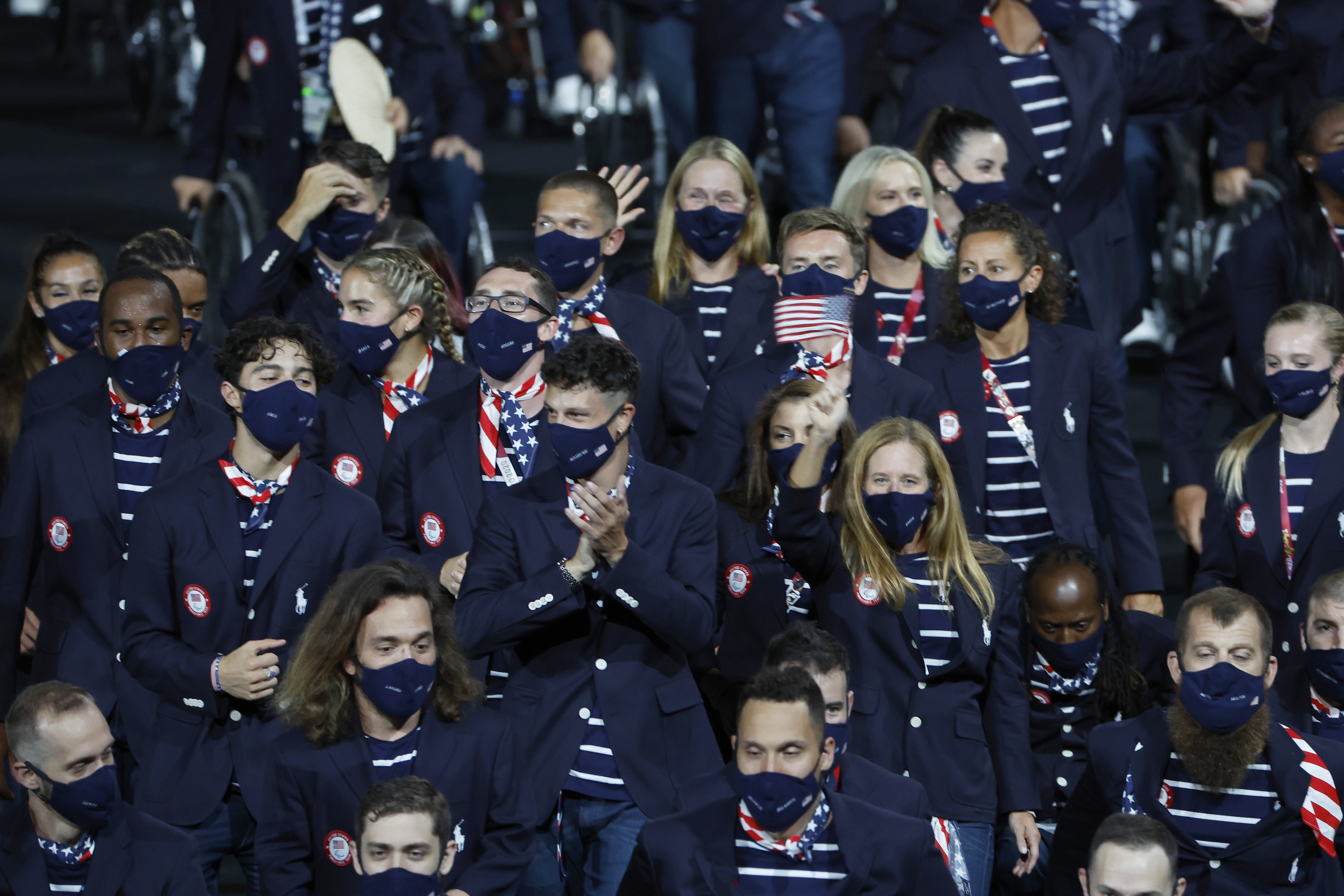Reigning Olympic gymnastic champion Simone Biles withdrew from the women's team and individual all-around finals on Tuesday after struggling to land her first vault in the team competition, saying that while she feels good physically, things "vary" emotionally.
Why did Simone Biles stop competing?
Biles cited the emotional toll of the Games when explaining her decision to withdraw from the women's gymnastics team and individual all-around finals at the Tokyo Olympics.
The reigning Olympic champion pulled out of the team finals on Tuesday after failing to stick her landing on an uncharacteristically poor vault. Biles could be seen being evaluated by the gymnastic team’s trainers afterward, though she later confirmed she was not injured.
Feeling out of the loop? We'll catch you up on the Chicago news you need to know. Sign up for the weekly Chicago Catch-Up newsletter here.
"No, no injury, thankfully,” Biles said at a later press conference. “And that's why I took a step back, because I didn't want to do something silly out there and get injured.”
It was announced later Wednesday that Biles had also decided to withdraw from the women's individual all-around competition.
Her withdrawal after the vault appearance had some gymnasts talking about 'the twisties.'
Tokyo Olympics
Watch all the action from the Tokyo Olympics live on NBC
What are the ‘twisties’ in gymnastics?
The "twisties" in gymnastics refer to a phenomenon wherein an experienced athlete suddenly loses their sense of where their body is in space - a sense that is crucial to the sport and the sudden loss of which could result not just in an Olympic loss but in serious bodily injury or even paralysis.
The twisties are an issue Biles has faced before, according to Olympics.com, including in 2019.
“2019, at the beginning of the year, I forgot how to twist and flip. It was great,” Biles recalled in a January 2020 interview.
Gymnast Laurie Hernandez, Biles’ 2016 Olympic teammate, told Olympics.com that the so-called twisties can set in just as a gymnast attempts a high-level skill, when even a slight misstep could carry grave consequences.
“The rhythm is off, and your brain will like, stutter step for half a second, and that's enough to throw off the whole skill,” Hernandez told Olympics.com. “And, so, it happens, and it takes a second to get over that.”
Shannon Miller, the most decorated U.S. female gymnast in Olympic history, echoed the importance of mental and emotional health on a gymnast's physical performance and safety.
"What I think is really important here is, you have Simone, who clearly knew something wasn't quite right, and when you are flying and flipping and turning 10, 15 feet above the floor, looking for a landing, you better be in the right headspace or really bad things are going to happen," Miller said in a Tuesday evening interview on CNBC.
Five-time Olympic medal gymnast Nastia Liukin on Simone’s decision to pull out
Five-time Olympic medal gymnast Nastia Liukin said Biles "did the right thing" when deciding to exit the women’s team final at the 2020 Tokyo Olympic Games to focus on her mental health.
"She did the right thing. She really wanted to focus on the team," Liukin told NBC Olympics' Mike Tirico. "And I think when you actually take a look at what happened on that vault — she got lost. And any gymnast knows — we call it the "twisties" — and basically she was supposed to do another whole rotation and got completely lost in the air. It's a mental error, essentially, that every single gymnast goes through."
Liukin said the phenomenon is well known among gymnasts, who are aware of its potential to lead to injury.
"If you are not 100% sure of yourself, and where you are in the air, it can be very dangerous," she said.
Simone’s Team USA gymnastics teammates show her support
After Biles' withdrawal mid-final, teammate Jordan Chiles subbed in on the uneven bars and the balance beam, and Biles eventually returned to the arena wearing a sweatsuit and cheered for her teammates from the sidelines.
"Honestly at that moment in time I knew I had to put my feet into her shoes and show the world that no matter what happens, that we can all take a place of somebody who's also great," Chiles told TODAY about replacing Biles.
"I'm just really proud of all three us because we really did step up to the plate when we needed to, and I probably wouldn't have it any other way," teammate Suni Lee said. "It's really hard losing a teammate, especially someone so amazing."
Teammate Grace McCallum said the squad "stepped up and showed people what we were made of."
"I just knew that we needed to have a really good day and we all did," McCallum said.
Team USA rallied in Biles' absence, taking the silver behind the Russian Olympic Committee, which beat the Americans by 3.432 points. It was the U.S. team's first loss in a global team competition since 2010. Britain won the bronze medal.
Who is Simone Biles’ replacement in the Olympic All-Around competition?
Jade Carey, a vault and floor specialist, is replacing Biles in the women's individual all-around final.
With Biles pulling out of the event, USA Gymnastics confirmed Wednesday that Carey will fill in, granting her a chance to win a medal at her first Olympics.
While Carey couldn't compete in the all-around team event, she still has an impressive resume to vie for a podium finish.
She earned a total of seven medals at world championships from 2018 to 2020, including six golds.
Her strengths are vault and floor exercise, for which she won two gold medals each at the Baku and Doha World Cups in 2019. Earlier this week, she qualified for both final events in the Olympics, posting the second-highest vault score, 15.166, and the third-highest score in floor, at 14.100.
Read more about Team USA's Jade Carey here.
TV and streaming info to watch Carey and Team USA Gymnastics in the Individual All-Around on NBC
Jade Carey and Sunisa Lee will represent the U.S. in the individual women's all-around on Thursday, July 29 at 6:50 a.m. ET. Watch the live stream here.




